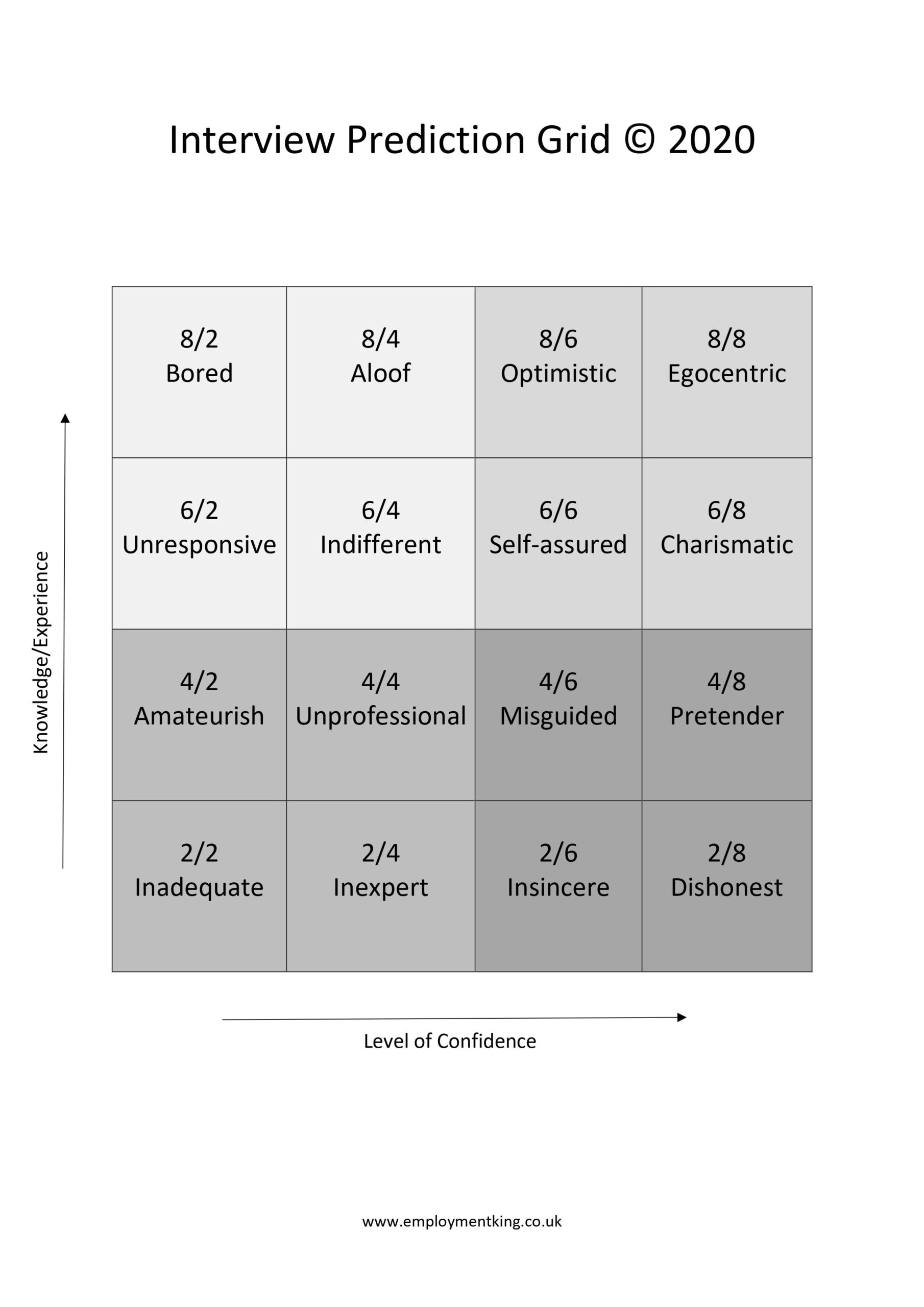Congratulations on completing the Interview Prediction Grid Test (IPG) ©2020.
Below is a breakdown of your Interview Identity
2/6 – Insincere

Confidence is an advantage in a job interview, as referred to in the high/high segment. However, when combined with low knowledge/experience, the increased self-assurance can be seen as hollow – you talk the talk, but can you walk the walk?
Often, medium confident individuals will make up for their lack of knowledge/experience by increasing verbal communication without making reference to the job criteria, confusing the interviewer.
Unlike their high confident counterparts, who can use their personas to influence the interview outcome with a non-expert interviewer, the 2/6 – Insincere interviewee doesn’t have the required level of confidence to sway the interviewer’s opinion. This is because the lack of knowledge/experience puts the applicant on the back foot.
Depending on the interviewer, the medium confidence level can be enough to secure some job offers above the low-skilled job level, but in most cases, the lack of expertise results only in low-skilled positions.
Strengths
Initial impressions are often strong with a 2/6 – Insincere as they present well and speak with authority on subjects they know well. This rapport building ability puts the interviewer at ease.
Confidence increases self-promotion. If the applicants are proactive, spending time researching the job criteria, they can design and practice high scoring answers.
Repeating well-rehearsed skill-based answers and using any known industry jargon can give the impression of having a higher level of knowledge/experience than they have. Only when challenged by an expert interviewer, do these applicants lose their ability to sell themselves.
On non-technical interview questions and during informal job interviews the 2/6 – Insincere applicant does well. When asked specific sector-related questions they are likely to fail in their attempt to impress the recruiter.
Development
Expectations are high after an initial positive introduction. It is the contrast of a perceived high level of knowledge/experience assumed by the employer due to the applicant’s confidence level, and the actual truth, which is often uncovered during technical questions, where the insincere identity is created.
Having virtually no industry-related experience is the barrier here. For voluntary positions the medium confidence level is enough to get a foot in the door. For low-skilled roles, employers are looking for a minimum level of related knowledge or experience which could be gained quickly through voluntary opportunities and/or educational pathways.
To improve this area of weakness, gaining an industry related qualification will not only allow them to understand industry-related jargon, they will also possess practical understanding of how to implement sector models or theories into business as usual tasks.
In addition, understanding the job criteria, industry jargon and commonly used processes can help. In the main, to gain a paid position where actual work experience or a related qualification is required.

Advice for the job interview
- Pick and research an industry-related news story prior to the job interview. Discuss with the employer before the interview start, as this will seed the idea of the applicant being knowledgeable – the halo effect
- Talk in depth about familiar sector-related topics, using well-known industry jargon when possible
- Reference the job criteria using non-work-related examples (or work-related examples if you have these). Personal stories can be utilised to highlight relevant skills and qualities.
Research: IPG





